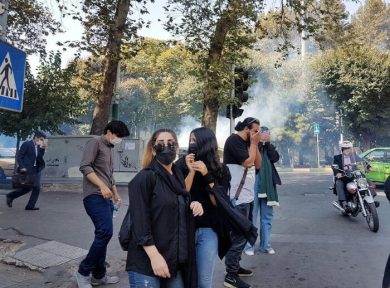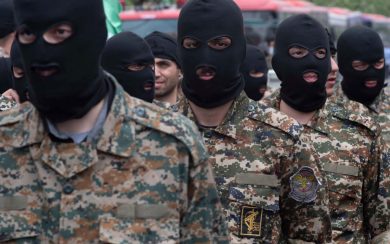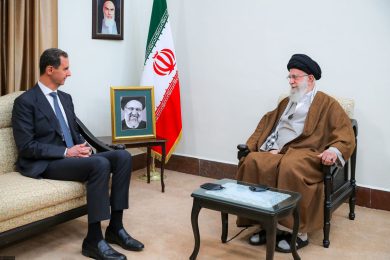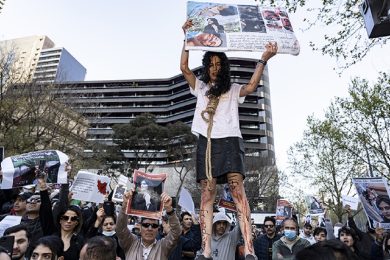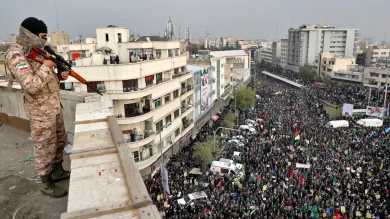In April 2019, the United States government made a landmark decision to designate Iran’s Islamic Revolutionary Guard Corps (IRGC) as a Foreign Terrorist Organization (FTO) under Section 219 of the Immigration and Nationality Act. This marked the first time the U.S. designated a part of a foreign government as a terrorist entity. The move, announced by the U.S. State Department and the Trump administration, significantly escalated tensions between the U.S. and Iran and reshaped the global understanding of state-sponsored terrorism.
This report examines the key reasons for the IRGC’s terrorist designation, the group’s activities both inside and outside Iran, and the implications of the designation for international diplomacy, regional stability, and counterterrorism policy.
1. What Is the IRGC?
The Islamic Revolutionary Guard Corps, established in 1979 after Iran’s Islamic Revolution, was designed to protect the new Islamic regime and serve as a counterbalance to Iran’s regular military. Over time, the IRGC has evolved into a powerful political, economic, and military force, with influence reaching across the Middle East and into global conflict zones.
It includes:
• Quds Force (its external operations arm)
• Basij militia (used for domestic repression)
• Control over numerous economic sectors in Iran
• Influence over media, judiciary, and foreign policy
2. The Legal Basis for the U.S. Terrorist Designation
Under U.S. law, a group can be designated an FTO if:
1. It is a foreign organization,
2. It engages in terrorist activity or retains the capability and intent to engage in terrorism,
3. It threatens the national security of the United States.
The IRGC clearly fits all three criteria.
Key Reasons for the Designation:
• Direct involvement in terror attacks through its Quds Force.
• Support for proxy militias like Hezbollah, Hamas, and the Houthis.
• Targeting and killing of U.S. troops and allies, especially in Iraq and Syria.
• Planning and financing global terrorist operations.
3. IRGC’s Role in Regional Terrorism
A. Iraq
The IRGC supported and armed Shia militias that were responsible for the deaths of over 600 American troops during the Iraq War. These militias used explosively formed penetrators (EFPs) and IEDs, weapons traced back to Iran.
B. Syria
The IRGC and its Quds Force have been instrumental in propping up Bashar al-Assad’s regime, providing arms, training, and fighters. This has led to:
• Mass civilian casualties
• Ethnic cleansing
• Prolonged civil war and regional instability
C. Lebanon
The IRGC created and continues to fund Hezbollah, a U.S.-designated terrorist organization. Hezbollah has been involved in:
• Attacks against Israel
• Terrorist acts against U.S. and Western interests
• Humanitarian and reconstruction cover-ups to expand Iranian influence
D. Yemen
The IRGC provides missiles, drones, and training to the Houthi rebels, enabling:
• Attacks on Saudi Arabia
• Threats to shipping lanes in the Red Sea
• Escalation of the Yemen civil war
4. Global Activities and Assassination Plots
The IRGC has been linked to plots and operations beyond the Middle East, including:
A. Latin America
• Establishing networks through embassies and businesses.
• Suspected involvement in bombings in Argentina (AMIA attack, 1994).
B. Europe
• Multiple assassination and abduction plots against Iranian dissidents in France, Germany, and the Netherlands.
C. United States
• In 2011, the IRGC plotted to assassinate the Saudi ambassador in Washington, D.C.
• Cyberattacks and threats against U.S.-based journalists and activists.
• Alleged kidnapping attempt of Iranian-American journalist Masih Alinejad in 2021.
5. IRGC’s Control Over Iran’s Economy and State Power
The IRGC is not merely a military entity—it controls:
• Major infrastructure projects
• Oil and gas sectors
• Construction and telecommunications
• Financial institutions through shell companies
These economic networks fund both internal repression and external operations, blurring the line between state and terror group.
6. Internal Repression: Targeting Civilians and Women
Beyond global operations, the IRGC is responsible for systemic repression within Iran:
• Violent crackdowns on protests (e.g., 2009 Green Movement, 2019 fuel protests, and 2022 Mahsa Amini protests)
• Mass arrests, torture, and extrajudicial killings
• Enforcing mandatory hijab laws and targeting women’s rights activists
• Surveillance and censorship, particularly of journalists and dissidents
These tactics amount to state terror, which aligns with the criteria for terrorist designation.
7. The Impact of the Designation
A. Legal and Financial Consequences
• Severe sanctions on IRGC-owned companies and affiliates
• Freezing of assets in U.S. jurisdiction
• Travel bans for IRGC members
• Criminal penalties for those who provide material support to the IRGC
B. Diplomatic Implications
• Makes negotiations with Iran more difficult
• Complicates diplomatic missions and conflict resolution efforts
• Increases pressure on allies to designate the IRGC as a terrorist entity
C. Military Significance
• Signals to U.S. military and intelligence services that IRGC operatives are legitimate military targets.
• Serves as a deterrent for IRGC-backed aggression in the region.
8. International Response and Debates
While the United States has designated the IRGC as a terrorist organization, other countries have had varying responses:
• Bahrain and Saudi Arabia support the designation and have labeled the IRGC a terrorist entity.
• The European Union has imposed sanctions, but has not (yet) formally listed the IRGC as a terrorist group—though pressure continues to grow.
• Canada has sanctioned IRGC members but is under internal political pressure to issue a formal designation.
Despite differing approaches, the IRGC’s actions continue to attract condemnation from human rights groups, think tanks, and international security experts.
Conclusion
The United States’ decision to designate the Islamic Revolutionary Guard Corps as a Foreign Terrorist Organization is grounded in decades of evidence. The IRGC has orchestrated or supported terrorist attacks, repression, regional proxy wars, and plots on American soil. It has evolved into a global threat, blurring the lines between state function and terrorist methodology.
Join Our Newsletter!
Stay informed with the latest updates, news, and ways to take action in the fight for justice and global security. Sign up now to get updates delivered straight to your inbox!

